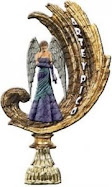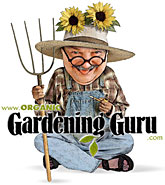Garden Blogger’s Muse Day, updated again
This one is for GardenJoy4Me and everyone else out there battling woodchucks and racoons and other critters. Not that I am recommending this method, but it’s long been a favorite poem of mine, and came to mind as I read of several decimated gardens and the ongoing struggle to remove the decimaters humanely.
Woodchucks
Gassing the woodchucks didn’t turn out right.
The knockout bomb from the Feed and Grain Exchange
was featured as merciful, quick at the bone
and the case we had against them was airtight,
both exits shoehorned shut with puddingstone,
but they had a sub-sub-basement out of range.
Next morning they turned up again, no worse
for the cyanide than we for our cigarettes
and state-store Scotch, all of us up to scratch.
They brought down the marigolds as a matter of course
and then took over the vegetable patch
nipping the broccoli shoots, beheading the carrots.
The food from our mouths, I said, righteously thrilling
to the feel of the .22, the bullets’ neat noses.
I, a lapsed pacifist fallen from grace
puffed with Darwinian pieties for killing,
now drew a bead on the little woodchuck’s face.
He died down in the everbearing roses.
Ten minutes later I dropped the mother. She
flipflopped in the air and fell, her needle teeth
still hooked in a leaf of early Swiss chard.
Another baby next. O one-two-three
the murderer inside me rose up hard,
the hawkeye killer came on stage forthwith.
There’s one chuck left. Old wily fellow, he keeps
me cocked and ready day after day after day.
All night I hunt his humped-up form. I dream
I sight along the barrel in my sleep.
If only they’d all consented to die unseen
gassed underground the quiet Nazi way.
–Maxine Kumin
While hunting for this poem on-line I discovered that there’s a fair amount of really bad analysis of it out there. Don’t read any of it.
Rather to my surprise, this poem upset and angered a fair number of students, I discovered. (This was in a poetry course with a full range of college students in it.) That response always surprised me, but then it always seemed to me that the poem contained a critique of the action it describes, so that the poem’s subject isn’t shooting the woodchucks, but the moral quandry this action inspired. How privileged, this literary remove from life.
By the way, after perusing the serious submissions out there, zip on over to the Bumblebee blog for a swift lightener-upper.
UPDATE:
Here’s a link to Kumin reading the poem. The most interesting part, for me, is her brief introduction, in which she says this is "a terribly autobiographical poem."

 Subscribe to RSS feed
Subscribe to RSS feed



Ugh. A number of women in my poetry class hated the poem–whereas, of course, the men liked it. Wonder why. (sarcasm) I’m with you on every account on how we could / should read it.
Benjamin, did the women get it? Some folks just miss the self-awareness in the poem. Others feel that self-awareness doesn’t excuse the action–and that’s a valid criticism, I think, except that it creeps towards a perfectionism that isn’t just unobtainable, it’s objectionable.
A former prof. disliked Orwell’s essay “The Execution” (I think that’s the title) on the grounds that Orwell should have DONE something about it, not just bemoaned it after the fact. She also thought he shouldn’t have shot the elepant. Well, duh. He agrees. The whole point of “Shooting an Elephant” and perhaps of Kumin’s poem as well is how we can be backed into what feels like a corner, and then take what seems to be the only way out. Interesting that both involve shooting animals.
In Orwell’s case, of course, he’s crowded into that corner not by peer pressure, but by the massed Indian peasants waiting to see what the British soldier with the gun was going to do, while in Kumin’s case, it was her own logic that laid out the straight and narrow path into that corner. Ooh, I see a comparative essay assignment. I’d never thought of these two together before.
By the way, are you onto Dan Schneider? I was happily ignorant of him until this morning, when I stumbled on his rewrite of this poem. If you want to see red, check it out: http://www.cosmoetica.com/TOP30-DES28.htm
–Kate
Kate .. I’m reading this very early in the morning .. so a bit foggy even with the coffee.
A point I take away from this poem is that we all have a dark corner some where in us that when pushed to the absolute limit .. well we can be capable of at least the “thought” of doing such things ? .. just a wee bit ? LOL
Thanks for your thoughts too .. LOL
Joy
Food for thought, Kate! Thanks for posting this. Surely Kumin’s point is the contrast between the “clean,” hidden, cost-free death–loved her comparing it to the Nazis’ techniques–and the awful, ugly, hands-on, in-your-face reality of what you’re actually doing to the animals if you decide to kill them. Reminds me of people who happily eat cut-up, sanitized, plastic-encased meat while getting up in arms about hunters. In both the poem and the meat consumption, the actions are the same, but in only one case in each instance is the responsibility for that action squarely faced.
Absolutely how I think of it, Joy. There’s an audio of Kumin reading the poem (I just added the link to the post); I don’t especially like the reading, actually, but she introduces it by saying that it’s “a terribly autobiographical poem,” which I think says a lot about her horror at what she did.
OFB–Yes. Great analogy! There’s an on-line idiot (in my humble opinion) who thinks the reference to Nazis is over-used, simplistic, but I disagree; if it makes for easy moral closure, it’s a cop-out, but if it makes us think, it isn’t.
–Kate
Hi. I just came across your website while I was looking online for analyses of “Woodchucks.” I was beginning to doubt my own interpretation of that poem, until I hit your website. I agree that the speaker evinces more self-awareness than she is commonly given credit for. The final two lines, for example, beg to be read as an expression of self-deprecating irony.
P.S. I can’t find the link you state that you’ve provided to Kumin’s reading of the poem. I’ve clicked on every link on this page and none of them take me anywhere but to other posts on your website. Am I missing something?